The Judeo-Christian Paradox, Part IV
Having eyes, they see not; yet having mouths, they testify still...
“For other nations have not inflicted on us and on Christ this wrong to such an extent as you have, who in very deed are the authors of the wicked prejudice against the Just One, and us who hold by Him. For after that you had crucified Him, the only blameless and righteous Man — through whose stripes those who approach the Father by Him are healed — when you knew that He had risen from the dead and ascended to heaven, as the prophets foretold He would, you not only did not repent of the wickedness which you had committed, but at that time you selected and sent out from Jerusalem chosen men through all the land to tell that the godless heresy of the Christians had sprung up, and to publish those things which all they who knew us not speak against us.
So that you are the cause not only of your own unrighteousness, but in fact of that of all other men. And Isaiah cries justly: 'By reason of you, My name is blasphemed among the Gentiles.”
― Justin Martyr, Dialogue with Trypho, Ch. 17
The Wolves Within is a must-read for every believer who refuses to be deceived.
Hit the Tip Jar and help spread the message!
This post contains affiliate links, which means I may receive a commission or affiliate fee for purchases made through these links.
Unlock the mysteries of Biblical cosmology and enrich your faith with some of the top rated Christian reads at BooksOnline.club.
Click the image below and be sure to use promo code SCIPIO for 10% off your order at HeavensHarvest.com: your one stop shop for emergency food, heirloom seeds and survival supplies.
Related Entries
The notion of a harmonious "Judeo-Christian" tradition ultimately collapses under the weight of historical and theological reality: nowhere is this blatant contradiction more evident than in the Talmud's treatment of Jesus Christ.
The Babylonian Talmud, and other rabbinic literature, do not shy away from attacking Christ — often in the most grotesque and blasphemous terms (emphasis mine):
All that the rabbis let us know about him is hostile, insulting and malevolent. Sometimes he is referred to under the name of Balaam the son of Behor, 'the false prophet' who led Israel astray; sometimes under his real name of Jesus of Nazareth, but always with some insulting qualification, such as the liar, the impostor or the bastard. …
These fables even crystallized in the rabbinical tradition to form a blasphemous pseudo-biography, the Toledoth Jeshua which circulated among the Jews... According to this compilation, Jesus was the illegitimate son of Mary, the wife of a perfumer and of a Roman soldier, called Pandara or Panthera. He was taken by his stepfather to Egypt where he studied sorcery and was thus enabled to seduce Israel. He was arrested as an agitator and a sorcerer and turned over to the Sanhedrin, spending forty days in the pillory before he was stoned and hanged at the Feast of the Passover.
— Daniel-Rops, Jesus and His Times
As we can see from the Gospel accounts (such as John 8:37-44), many of these calumnies were spread from the beginning of Christ’s earthly ministry. What does this tell us? If Christ were a mere imposter, a forgettable heretic of no significance, why does the rabbinic tradition continue to rage against Him across the millennia? If Christ were a mere false prophet, why devote such attention to His destruction? Why the obsession with slandering His birth, claiming He was the illegitimate son of a Roman soldier, if He is merely a mythological figure? Why the blasphemous declarations that He is boiling “in excrement” in Hell (Gittin 57a)?
The prolific Jewish scholar Israel Shahak notes too that Maimonides' Mishneh Torah is filled with explicit attacks on Christians and on Christ (emphasis mine):
The Editio Princeps of the complete Code of Talmudic Law, Maimonides' Mishneh Torah — replete not only with the most offensive precepts against all Gentiles but also with explicit attacks on Christianity and on Jesus (after whose name the author adds piously, 'May the name of the wicked perish') …
According to the Talmud, Jesus was executed by a proper rabbinical court for idolatry, inciting other Jews to idolatry, and contempt of rabbinical authority. All classical Jewish sources which mention his execution are quite happy to take responsibility for it; in the Talmudic account the Romans are not even mentioned.
— Israel Shahak, Jewish History, Jewish Religion
Not only does the Talmud confirm Christ’s crucifixion (or, more precisely, hanging) but it does so with a sense of utter vindication — if not outright glee. Hyam Maccoby, an expert on Jewish history, concedes that (emphasis mine):
The Talmud contains a few explicit references to Jesus... These references are certainly not complimentary... There seems little doubt that the account of the execution of Jesus on the eve of Passover does refer to the Christian Jesus...
— Hyam Maccoby, Judaism on Trial
Indeed, the contempt with which the rabbis hold Christ and His blessed mother is not only legendary, but manifestly clear.
— “Maimonides marble bas-relief, one of 23 reliefs of great historical lawgivers in the chamber of the U.S. House of Representatives in the United States Capitol. Sculpted by Brenda Putnam in 1950.” Source: Wikipedia.
One of the most politically influential Jewish outreach organizations in the world, Chabad Lubavitch, has freely cited these blasphemous and vile passages (emphasis mine):
By 1999, certain Orthodox Jewish organizations were even more forthcoming, openly admitting that the Talmud describes Jesus as a sorcerer and a demented sex freak. These Jewish organizations make this admission perhaps out of the conceit that Jewish supremacy is so well entrenched in the modern world that they need not concern themselves with adverse reactions. On the website of the Orthodox Jewish, Chabad Lubavitch group — one of the largest and most powerful Jewish organizations in the world — we find the following statement, accompanied by citations from the Talmud: "The Talmud (Babylonian edition) records other sins of 'Jesus the Nazarene.'
1. 'He and his disciples practiced sorcery and black magic, led Jews astray into idolatry, and were sponsored by foreign, gentile powers for the purpose of subverting Jewish worship (Sanhedrin 43a).
2. "He was sexually immoral, worshipped statues of stone (a brick is mentioned), was cut off from the Jewish people for his wickedness, and refused to repent (Sanhedrin l07b; Sotah 47a).
3. "He learned witchcraft in Egypt... (Shabbos l04b)." 55 (End quote from Chabad-Lubavitch), Gittin 57a says Jesus is in hell, being boiled in "hot excrement."
Sanhedrin 43a says Jesus was executed because he practiced sorcery: "It is taught that on the eve of Passover Jesus was hung, and forty days before this the proclamation was made: Jesus is to be stoned to death because he has practiced sorcery and has lured the people to idolatry...He was an enticer and of such thou shalt not pity or condone."
— Michael Hoffman, Judaism’s Strange Gods
These citations are not obscure references pulled from dubious sources; they are well known texts from the Talmud, openly acknowledged as authoritative by the rabbis and mainline Jewish sects. Such a posture of gleeful condemnation is wholly inconsistent with the idea that rabbinic Judaism fostered Christianity as a long-term strategic proxy.
Peter Schäfer’s work Jesus in the Talmud highlights another key point in this discussion: the rabbinic accounts of Jesus are not based on independent historical traditions but are instead polemical responses to the Gospel accounts — an anti-Gospel, if you were (emphasis mine):
These stories are a deliberate and carefully phrased retelling — not of what “really happened” but of what has come to or captured the rabbis’ attention. And the source to which they refer is not some independent knowledge of Jesus, his life, and his followers that has reached them through some hidden channels; rather, as I could show in detail, it is the New Testament (almost exclusively the four Gospels) as we know it or in a form similar to the one we have today. Hence, the rabbinic stories in most cases are a retelling of the New Testament narrative…
— Jesus in The Talmud, Pg. 96-97
It is a striking reality that the very writings meant to repudiate Christ affirm (albeit, negatively) His central claims — His identity, His supernatural power, and His wicked and unjust death at the hands of the rulers of Israel.
The following account from the Talmud is a damning admission — one that betrays the rabbis’ resistance to the Truth as they speak of the failure of the atoning rituals at the end of Second Temple era:
The Sages taught: During the tenure of Shimon HaTzaddik, the lot for God always arose in the High Priest’s right hand; after his death, it occurred only occasionally; but during the forty years prior to the destruction of the Second Temple, the lot for God did not arise in the High Priest’s right hand at all. So too, the strip of crimson wool that was tied to the head of the goat that was sent to Azazel did not turn white, and the westernmost lamp of the candelabrum did not burn continually.
The Talmudic claim regarding the unchanging crimson wool takes on an even more chilling significance when we consider it in light of Isaiah’s prophecy (emphasis mine):
Come now, and let us reason together, saith the Lord: though your sins be as scarlet, they shall be as white as snow; though they be red like crimson, they shall be as wool.
— The Book of Isaiah 1:18 KJV
The crimson wool, which should have turned white as a symbol of atonement, remained bloody for the forty years leading up to the Temple's destruction by Titus Vespasian. In this, the rabbis' own words condemn them, and the Talmud once again affirms the death of Jesus Christ in 30 AD.
The truly unparalleled idiocy of the claim that Christianity is a rabbinic plot against the goyim crumbles in the face of the Talmud’s own words. If the rabbis concocted Christ and His message as a strategic tool of mental and spiritual subjugation, why would they relentlessly vilify Him for two millennia? Why do they continue to curse His name, recording blasphemies so vile that they had to be censored in later editions of the Talmud so as to avoid Christian outrage? Why do the rabbis continue to take pride in His condemnation, reveling in grotesque visions of His alleged punishment in the afterlife? Why do the Scriptures continually call out and expose the very people these deluded neo-pagans think conspired to create it? Such stupidity can not be derided enough.
The rabbis distort and caricature Christ because they still see Him (and rightly so) as a threat to their hegemony (John 11:47-53).
The Talmud is not engaged in myth-making so as to dupe the Gentiles: it is an exercise in rabbinic damage control.
“12 And when they were assembled with the elders, and had taken counsel, they gave large money unto the soldiers,
13 Saying, Say ye, His disciples came by night, and stole him away while we slept.
14 And if this come to the governor's ears, we will persuade him, and secure you.
15 So they took the money, and did as they were taught: and this saying is commonly reported among the Jews until this day.”
— The Gospel of Matthew 28:12-15 KJV
It is one of the most ironic — and perplexing — paradoxes of religious thought that the very rabbis who have spent millennia bitterly denouncing Jesus as a false messiah then go on to affirm all the central tenets of the Messianic prophecies as set forth in the Scriptures.
In their relentless denials, they recite and expound upon the very characteristics that the New Testament proclaims as the fulfillment of Old Testament prophecy. The rabbis do not dispute that the Messiah was to be the only begotten Son of God, to be divine in nature, to suffer for the sins of his people (indeed, to be pierced), and to establish an everlasting Kingdom in which all the nations of the world would worship Him as their Eternal King.
Maimonides — arguably the most towering and influential figure in Judaic thought — sets the stage by underscoring the unique status of the Messiah. He writes (emphasis mine):
The Messiah, indeed, ranks after Moses in eminence and distinction, and God has bestowed some gifts upon him which he did not bestow upon Moses, as may be gathered from the following verses: "His delight shall be in the fear of the Lord." (Isaiah 11:3). "The Spirit of the Lord shall rest upon him." (11:2). "And Righteousness shall be the girdle of his loins." (11:5). Six appellations were divinely conferred upon him as the following passage indicates: "For a child is born unto us, and a son is given unto us, and the government is upon his shoulder, and he is called Pele, Yoetz, el, Gibbor [the mighty God -SE], Abiad, Sar-Shalom." (Isaiah 9:5). And another verse alluding to the Messiah culminates in the following manner "Thou art my son, this day have I begotten thee." (Psalms 2:7). All these statements demonstrate the pre-eminence of the Messiah.
— Moses “Rambam” Maimonides, Epistle to Yemen
Few texts cut as deeply into the heart of rabbinic denial as Maimonides’ Epistle to Yemen.
One of Judaism’s most venerated legal authorities — if not the most — unequivocally outlines the divine attributes and pre-eminence of the Messiah. With these exalted titles (Pele, Yoetz, El Gibbor, Abiad, Sar-Shalom), Isaiah 9:5 truly leaves exceedingly little room for alternative interpretations. These titles encapsulate the Messiah’s attributes: His divine authority (El), His mighty strength (Gibbor), His eternal purity (Abiad), and His role as the Prince of Peace (Sar-Shalom). Similarly, Psalm 2:7 is a direct, unmediated statement of divine sonship that even the Rambam must acknowledge: “Thou art my son, this day have I begotten thee” — identifying the Messiah as the unique, only begotten Son of God.
It is precisely this clarity that makes the sustained rabbinic denials so paradoxical. Despite the explicit messianic portrait painted in these texts, contemporary rabbinic authorities and polemicists insist that Jesus does not fulfill these prophecies. Their argument is not that the prophetic texts are ambiguous, but that their fulfillment has not yet occurred. They argue that the Messiah foretold by prophets like Isaiah, Zechariah, Daniel, or the Psalmist remains a future hope — an ideal yet unrealized.
But here is where the Epistle to Yemen strikes a fatal blow to such claims. Maimonides’ candid admission forces a brutal confrontation for the Talmudists: if the Messiah is the one described in Isaiah 9 and Psalm 2, then He must be one who is divinely begotten, endowed with unique attributes, and destined to reign with universal authority. The fact that Jesus claimed these very characteristics — proclaiming His eternal sonship (John 8:58, 17:5), performing miracles, and ultimately suffering (even being pierced) to reconcile humanity to Himself — cannot merely be dismissed as a future, unfulfilled promise.
— Portrait of Rashi (1040-1105), ill. by Meir Kunstadt.
Perhaps the most compelling evidence of rabbinic acknowledgment of Christ’s central claims is found in their interpretation of Daniel 7. In Daniel’s apocalyptic vision, a figure described as “one like a son of man” comes with the clouds of heaven to the Ancient of Days in order to receive authority, glory, and an everlasting dominion. Importantly, the Son of Man is said to receive service and worship, or pelach (פְלַח) — a type of worship that is specifically reserved for Yahweh alone (Daniel 3:12-18). Medieval commentators such as Rashi explicitly identify this figure as “King Messiah” (Rashi). For the rabbis, Daniel 7 is not an obscure prophecy — it is a direct forecast of a Messiah who would be both divine and regal, destined to usher in a cosmic reign.
From the earliest pages of the Old Testament, one theme remains conspicuous and profoundly significant: the image of the divine cloud rider (Exodus 13:21-22, 19:9, 24:15-16; Deuteronomy 33:26; Psalm 68:4, 104:3; Isaiah 19:1; Ezekiel 1:4, 1:28, 10:1-22). Whether guiding the Israelites through the wilderness or manifesting His Glory, Yahweh is repeatedly depicted as riding on or surrounded by clouds. This vivid imagery is not a mere poetic flourish; it is a theological declaration of divine authority, transcendent presence, and the intimate relationship between God and His people. What, then, is the theological significance of this cloud rider imagery and its association with the Messiah? First and foremost, it is a declaration of the Messiah’s divine authority and honor. Secondly, and no less crucially, the cloud rider imagery establishes a continuity between the Old Testament theophanies of Yahweh and Jesus Christ.
In the New Testament, we see Jesus’ bold affirmation of this prophecy during His trial before the Sanhedrin (emphasis mine):
60 And the high priest stood up in the midst, and asked Jesus, saying, Answerest thou nothing? what is it which these witness against thee?
61 But he held his peace, and answered nothing. Again the high priest asked him, and said unto him, Art thou the Christ, the Son of the Blessed?
62 And Jesus said, I am: and ye shall see the Son of man sitting on the right hand of power, and coming in the clouds of heaven.
63 Then the high priest rent his clothes, and saith, What need we any further witnesses?
64 Ye have heard the blasphemy: what think ye? And they all condemned him to be guilty of death.
— The Gospel of Mark 14:60-64 KJV
What is most significant here is that the very passage Jesus refers to — Daniel 7 — had already been recognized by the Pharisees as messianic, though they obviously rejected its fulfillment in Christ.
The irony for the Talmudist is stark. While they vehemently deny that Jesus fulfills the Messianic criteria, their exegesis of Daniel 7 leaves them no alternative but to affirm that the true Messiah is a figure destined to receive universal worship. Equally significant is the rabbinic admission — albeit through a process of vehement denial — that the Messiah must suffer for the transgressions of His people. Zechariah 12, for instance, speaks of a divine figure who is pierced — a prophecy that the Apostle John identifies as being fulfilled during the crucifixion of Jesus (John 19:37). Rashi, one of the foremost medieval rabbinic commentators, acknowledges that this piercing is an essential element of the Messianic destiny: it is the Messiah who is pierced, and Jerusalem will mourn His death (Rashi).
Adding further weight to this paradoxical state of affairs is the insight provided by German orientalist and scholar Johann Andreas Eisenmenger, who summarizes the complex nature of God and the Messiah as understood within Second Temple and rabbinical literature. The consensus beliefs of the Second Temple era, and certain strains of Judaism, is decidedly non-Unitarian:
1. That there is a Plurality in the Divine Essence.
2. That this Plurality is a Trinity.
3. That the three Persons are the Father, Son, and Holy Ghost.
4. That the Second Person is called the Word of God.
5. That the Messias was to be God and Man.
6. That as Mediator between God and Man he was to be Prophet, High-Priest, and King.
The gravity of these admissions cannot be overstated. The Pharisees, while later denying that Jesus fulfilled these roles, had to contend with the very evidence laid before them in the writings of Moses and the Prophets. They are, by their own exegesis, forced to recognize that the Messiah was destined to be a bridge between humanity and God — a mediator who would, by virtue of His divine nature, command the worship of all nations.
This is exactly what the New Testament proclaims about Jesus: He is the Eternal & incarnate Word (John 1), fully God & fully man (Hebrews 1-2), who serves as the sole mediator between Creator & creation (I Timothy 2:5). The idea that the Messiah is both fully God and fully man is not a theological novelty invented by Constantine, the Catholic Church, or early Christians: it is a truth that is so deeply enmeshed in the writings of Moses and the Prophets that even the antichrist rabbis can not help but admit these obvious truths.
If anything, the Talmud is an unwilling and hostile witness, proving that Christ is precisely who He said He was.
“A man is obligated to recite three blessings every day praising God for His kindnesses, and these blessings are: Who did not make me a gentile; Who did not make me a woman; and Who did not make me an ignoramus.”
Justin Martyr, in his Dialogue with Trypho, relentlessly drives home the point that the Jews, by their rejection of the crucified King, are themselves fulfilling prophecy:
For the statement in the law, 'Cursed is every one that hangs on a tree,' Deuteronomy 21:23 confirms our hope which depends on the crucified Christ, not because He who has been crucified is cursed by God, but because God foretold that which would be done by you all, and by those like to you, who do not know that this is He who existed before all, who is the eternal Priest of God, and King, and Christ. And you clearly see that this has come to pass. For you curse in your synagogues all those who are called from Him Christians; and other nations effectively carry out the curse, putting to death those who simply confess themselves to be Christians.
While the Talmudists may see this curse as a repudiation of Christ, it is precisely this curse that affirms His messianic role. The Law, far from condemning Christ, serves to magnify His victory over sin and death. Christ bore the curse of the Law — death — taking it upon Himself to ransom humanity from death’s bondage. It is truly paradoxical that those who curse Him are the very witnesses to His fulfillment of the Law, blind to the truth they unwittingly proclaim.
As alluded to by Justin Martyr, the Birkat Haminim encapsulates the height of Jewish animosity toward the followers of Christ:
…the birkat haminim explicitly included among the malefactors being cursed noserim, the common Hebrew term for Christians. Many through the centuries had understood the prayer to have been anti-Christian in its origins and ongoing intent. Scholars were aware that the Church fathers, and especially Justin Martyr (d. c.165), accused Jews of cursing Christians during prayers, and that Epiphanius (d. 403) and Jerome (d. 420) specifically identify this as a curse against Nazarenes…
— Uri Ehlrich & Ruth Langer, The Earliest Texts of the Birkat Haminim
These curses still uttered in synagogues against Christians affirm the reality of what was foretold in the very Torah the Jews profess to uphold: "Cursed is every one that hangs on a tree" (Deuteronomy 21:23). This curse is not placed upon Christ by God (Heaven forbid), but by a rebellious people — precisely what the Crucifixion fulfilled.
— Paradox IV, digital art, 2025.
As this chapter draws to a close, let us summarize the Talmudic witness once more. What the rabbis sought to suppress in their maligning of Christ reveals far more than it intends:
Jesus was born under unusual circumstances, leading some rabbis to address him as ben Pandira and " a bastard of an adulteress."
Jesus' mother Mary was Heli's daughter.
Jesus was crucified on the eve of Passover.
Jesus made himself alive by the name of God.
Jesus was a son of a woman. (cf. Galatians 4:4)
Jesus claimed to be God, the son of God, the son of man.
Jesus ascended and claimed that he would return again.
Jesus was near to the kingdom and near to kingship.
Jesus had at least five disciples.
Jesus performed miracles, i.e. practiced "sorcery".
Jesus' name has healing power.
— Sam Shamoun, Jesus in the Rabbinic Traditions
Jesus is described throughout the rabbinic corpus as a man of unusual birth, a performer of miracles, one whose very name has healing powers. The Talmud recounts His death on the eve of Passover, His claims to be God, His ascension, and His promise to return in judgement.
In short, the Talmud neatly outlines the life of Christ as it is recorded in the Gospels, only to distort and demonize Him in the most brutal terms. Yet in doing so, it provides a begrudging testimony to the veracity of the New Testament. The rabbis’ admission of the failure of the Old Covenant rituals in the decades leading up to its destruction serves as a powerful indictment of the Judean rejection of Christ.
In conclusion, the Talmud does not merely serve as a hostile witness to Christ’s identity — it inadvertently bears witness to the truth of the Gospel and thus, the true paradox reveals itself: the rabbis deny the very Messiah they help to confirm, and in their rejection, fulfill the Messianic prophecies they seek to vehemently deny.
Concluded in Part V…
“25 The woman saith unto him, I know that Messias cometh, which is called Christ: when he is come, he will tell us all things.
26 Jesus saith unto her, I that speak unto thee am he.”
— The Gospel of John 4:25-26 KJV
The Wolves Within is a must-read for every believer who refuses to be deceived.
Hit the Tip Jar and help spread the message!
This post contains affiliate links, which means I may receive a commission or affiliate fee for purchases made through these links.
Unlock the mysteries of Biblical cosmology and enrich your faith with some of the top rated Christian reads at BooksOnline.club.
Click the image below and be sure to use promo code SCIPIO for 10% off your order at HeavensHarvest.com: your one stop shop for emergency food, heirloom seeds and survival supplies.







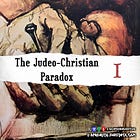

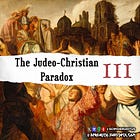


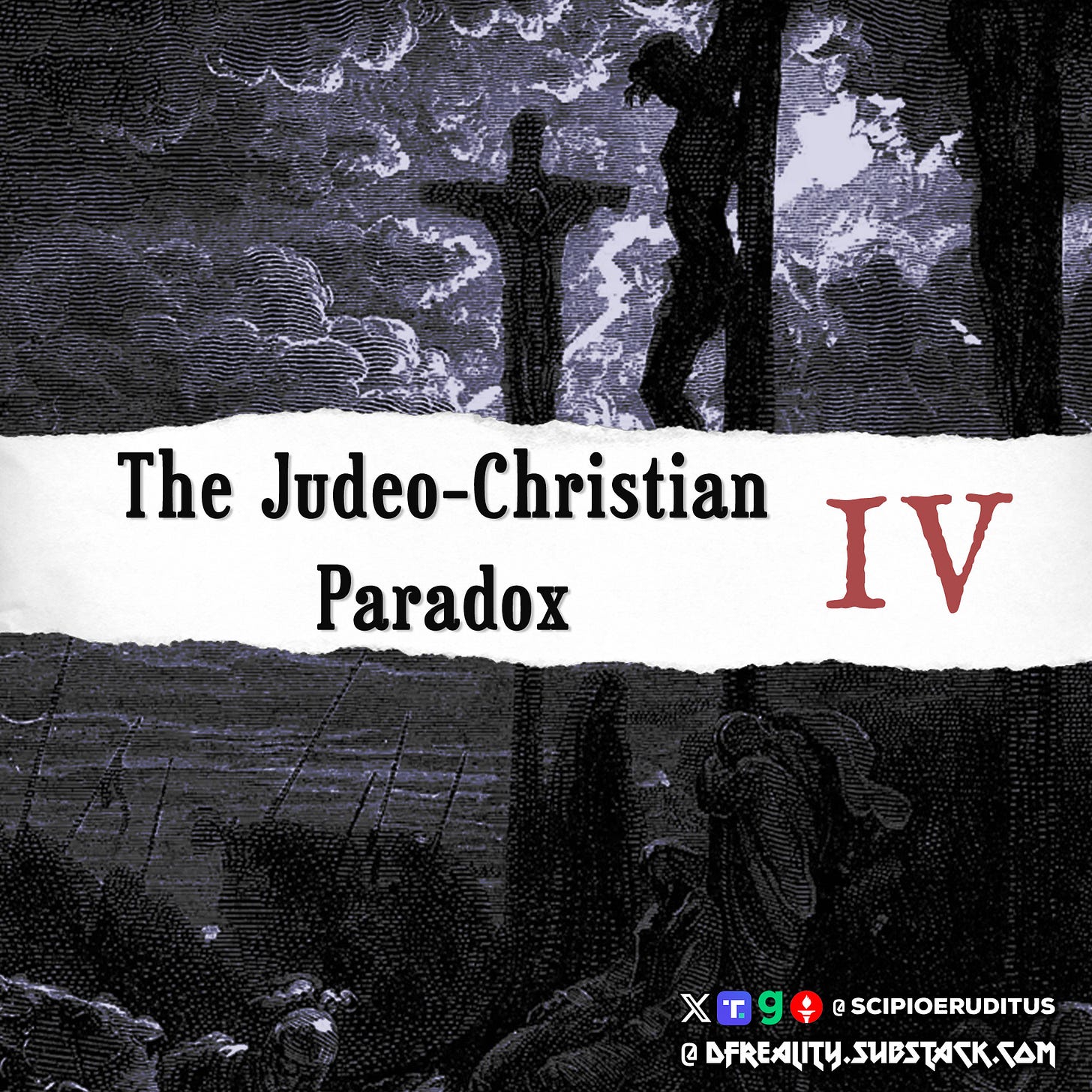
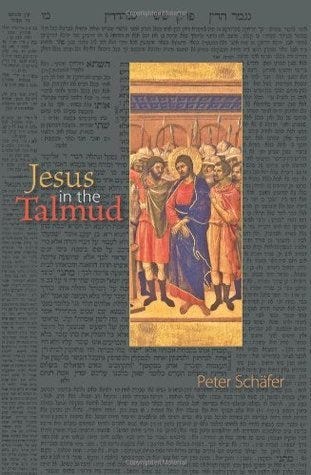

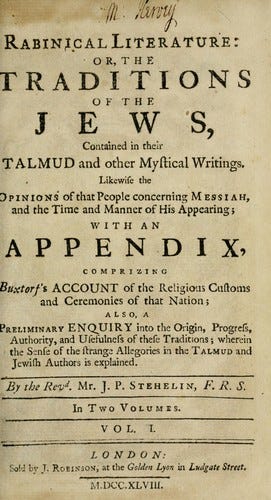
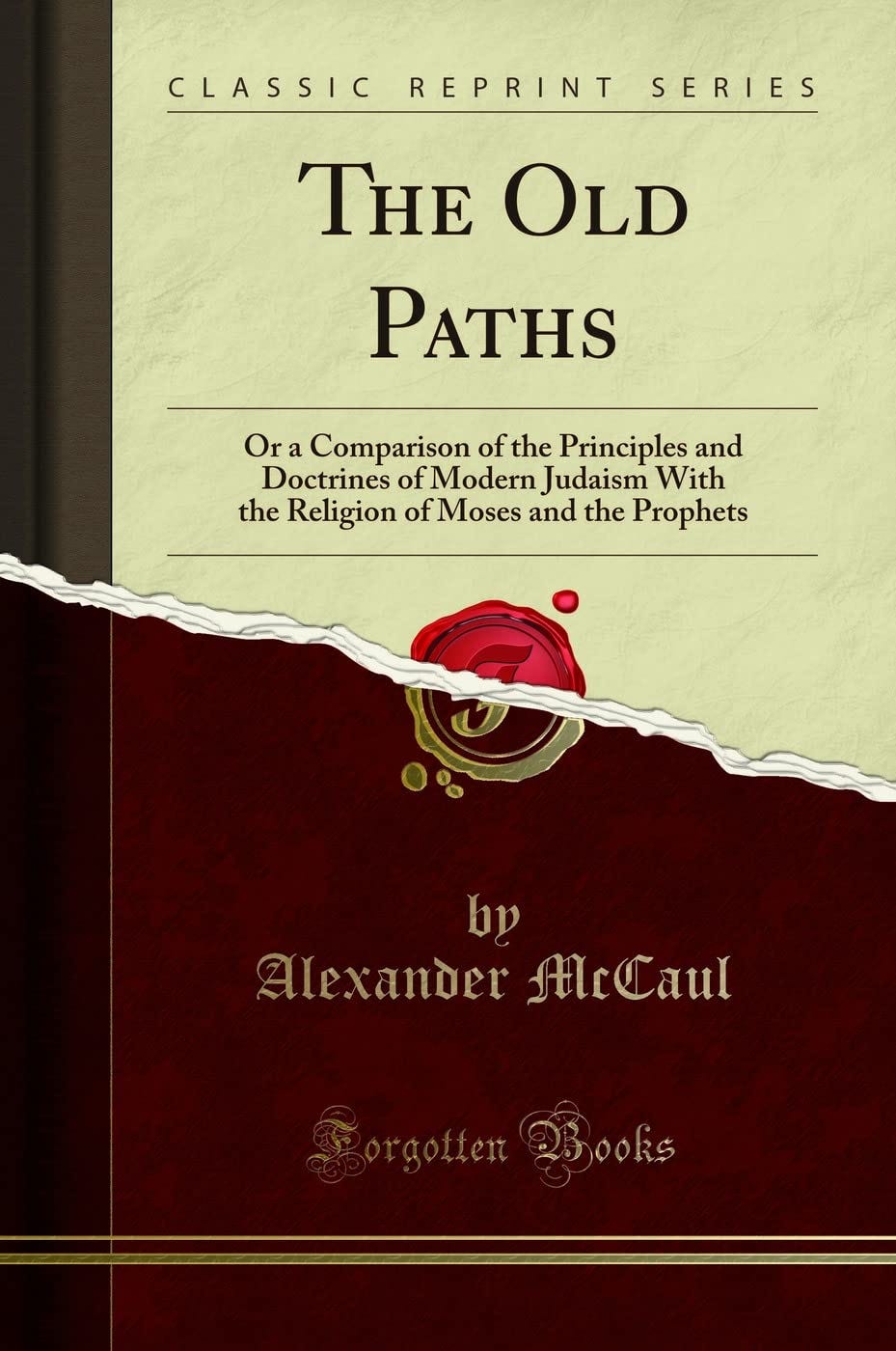
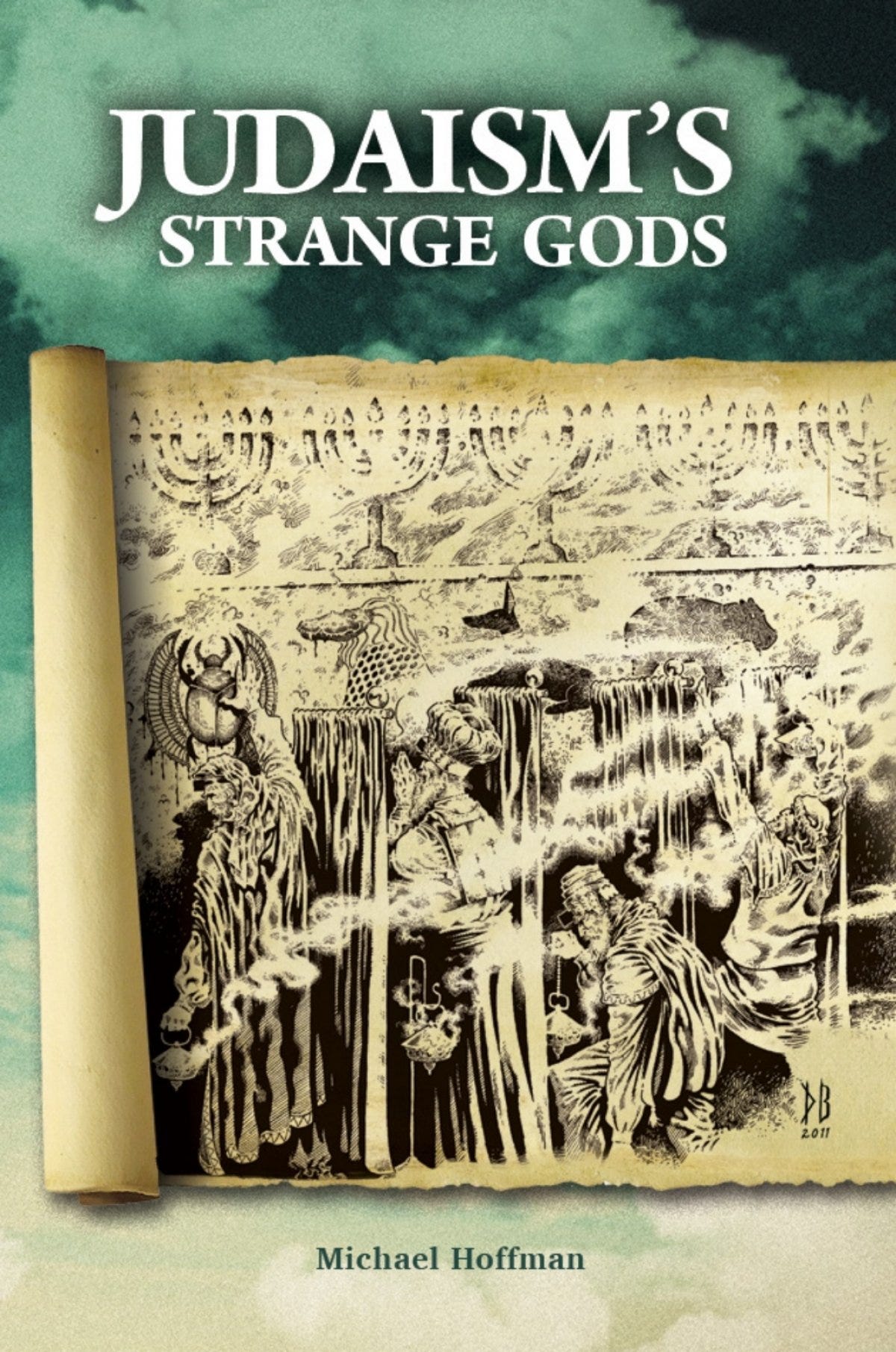
Wow, Scipio...this is sooo excellently written! I had to laugh that they are exposing their own hypocrisy. Then the thought--guess who may find themselves boiling in excrement?! Or worse...unquenchable fire. Ooops, is that hate speech? Laws are being constructed right now (or already are via noahide "laws") that will call it such and carry a prison term or, if they get their way, execution via beheading. The book I just read expounds on much of what you shared, and what they plan to do to "heretics". Those secrets are being exposed, just as God said they would. That book is one of the most eye-opening I've read yet--by DeAnne Loper, called Kabbalah Secrets Christians Need to Know, An in depth Study of the Kosher Pig and the Gods of Jewish Mysticism. You can find it on her website: https://kabbalahsecretschristiansneedtoknow.com/?m=1 So glad I found it. And the Lord blessed me just now, causing Stripe to bypass the E-mail code insertion and finally let me order your book, The Wolves Within. PRAISE THE LORD.Prayer always helps. PTL Bless you, and may God bless all your work and keep it accessible and safe from all the deniers and interlopers. ha ha. THANK YOU AND HAVE A WONDERFUL DAY IN THE LORD! P.S. I DO pray for all the deceived and those who are against us, that any who can still "come out of her deceptions", will seek the real truth, the real Lord of Lords. Only Jesus knows their hearts. It breaks my heart that my only Sister, who used to love the Lord, has joined their kabbalah and masonic ranks and is now a hater of the one she used to love!
This series of articles would benefit all Christians. It would strengthen many and cause other to repent of their idolatry and misinterpretation of the simple gospel message.